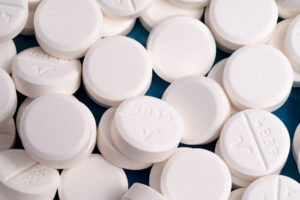In recent years, New Jersey has found itself at the forefront of the fight against the rising tide of synthetic drugs. These dangerous substances, often engineered to mimic the effects of traditional narcotics, have posed significant challenges for law enforcement, public health officials, and communities.
However, the Garden State has been making notable strides in combating this crisis. Through a combination of innovative law enforcement tactics, legislative action, and community outreach, New Jersey is pushing back against the growing prevalence of synthetic drugs, aiming to protect residents and restore safety across the state.
Learn about the latest trends in synthetic drug use, the state’s ongoing battle, and the recent successes that are making a difference in saving lives.
What are Synthetic Drugs?
 Synthetic drugs, often called “designer drugs,” are lab-made substances created to imitate the effects of natural drugs like marijuana, cocaine, or opioids. Unlike plant-based drugs, these synthetic versions have modified chemical structures that make them distinct from regulated substances and allow them to slip past standard drug laws temporarily.
Synthetic drugs, often called “designer drugs,” are lab-made substances created to imitate the effects of natural drugs like marijuana, cocaine, or opioids. Unlike plant-based drugs, these synthetic versions have modified chemical structures that make them distinct from regulated substances and allow them to slip past standard drug laws temporarily.
This regulatory loophole enables synthetic drugs to be manufactured and distributed more easily, despite existing legal restrictions. Designed to replicate the mental and physical effects of natural drugs, synthetic drugs can vary widely in potency and often produce more intense effects. Common types include synthetic cannabinoids, like “K2” or “Spice,” and synthetic cathinones, commonly known as “bath salts.”
One major danger of synthetic drugs is their unpredictability and potential potency. Often containing untested or harmful chemicals, they can lead to severe health problems like hallucinations, paranoia, heart issues, and even death. Marketed under benign-sounding names, these drugs can mislead users into thinking they’re safe. With new variations continuously emerging to bypass legal controls, synthetic drugs remain a persistent challenge for law enforcement and health officials, contributing to a growing public health crisis.
Types of Synthetic Drugs
 Synthetic drugs come in various forms. Each is designed to mimic the effects of traditional drugs but often with unpredictable and severe side effects. Common types include:
Synthetic drugs come in various forms. Each is designed to mimic the effects of traditional drugs but often with unpredictable and severe side effects. Common types include:
- Synthetic Cannabinoids: Known as “K2” or “Spice,” these are engineered to mimic THC but are much stronger. They can cause hallucinations, paranoia, rapid heart rate, and even psychosis.
- Synthetic Cathinones: Often called “bath salts,” these stimulants imitate cocaine or MDMA. They can lead to intense reactions, including violent behavior, hallucinations, and heart issues.
- Synthetic Opioids: Highly potent, such as fentanyl, synthetic opioids are far stronger than heroin, making them a leading cause of overdose deaths. Even small doses can be lethal.
- Phenethylamines: Designed to mimic MDMA or LSD, these “N-bombs” have psychedelic effects but are risky, with a high overdose potential and severe side effects.
- Piperazines: Marketed as substitutes for ecstasy. These stimulants can cause increased heart rate, nausea, and hallucinations, often appearing as “party pills.”
Each synthetic drug carries unique risks and is often more dangerous than the natural drugs they aim to mimic.
Synthetic Drug Addiction in New Jersey: An Overview
New Jersey has witnessed a troubling rise in synthetic drug use and related fatalities. These drugs, such as synthetic cannabinoids (K2, Spice) and synthetic opioids like fentanyl, are illegal in New Jersey and classified as controlled dangerous substances. The state treats synthetic drugs with the same legal severity as other illicit drugs, making the possession, distribution, and manufacturing of these substances criminal offenses. Despite these restrictions, the state has seen an increase in synthetic drug use and associated deaths, raising alarm among lawmakers and law enforcement officials who seek to find and punish users, producers, and distributors across the state.
To address this, New Jersey has implemented harsher penalties for synthetic drug offenses while law enforcement steps up anti-drug efforts. Yet, the constantly shifting chemical makeup of synthetic drugs allows new versions to bypass regulations, challenging officials. This crisis demands New Jersey’s legal and health systems constantly adapt to curb synthetic drug addiction and its impacts.
What are the Potential Penalties for Synthetic Drug Offenses?
In New Jersey, the penalties for synthetic drug offenses are severe and vary based on the amount and type of substance involved. The state treats synthetic drugs with the same seriousness as traditional controlled substances, recognizing the high risks associated with these potent, lab-made drugs.
Possession
For possession offenses, the severity of the charge depends on the quantity of synthetic drugs. Possessing less than one ounce of synthetic marijuana is classified as a fourth-degree crime, which can result in up to 18 months in prison and fines of up to $10,000. If an individual is found possessing one ounce or more, the charge escalates to a third-degree crime, carrying a potential sentence of three to five years in prison and fines up to $15,000. These penalties reflect the state’s strict stance on synthetic drugs and aim to deter their use and distribution.
Distribution
Distribution charges are even more serious. Distributing less than one ounce of synthetic marijuana is classified as a third-degree crime. This offense can result in a prison sentence of three to five years. If the amount distributed is one ounce or more, the offense becomes a second-degree crime, with penalties ranging from five to ten years in prison and fines as high as $150,000. These harsher penalties for distribution underscore New Jersey’s commitment to curbing the availability of synthetic drugs on the streets.
Given the potential for lengthy prison terms and high fines, anyone facing synthetic drug charges in New Jersey is strongly advised to seek immediate legal assistance.
How New Jersey is Combating Drug Addiction
New Jersey addresses drug addiction through a combined approach involving law enforcement, legislation, and public health programs.
The state actively targets major drug trafficking networks to disrupt the supply of illegal substances. In 2024, authorities arrested 17 individuals and seized large quantities of drugs and firearms during a significant narcotics investigation. This operation aims to weaken drug distribution networks and lower the availability of illegal substances in affected communities. These efforts are part of a broader strategy to dismantle organized crime groups involved in synthetic drug trafficking. By focusing on these networks, authorities hope to reduce drug availability and enhance community safety across the region.
New Jersey has enacted strict laws specifically targeting synthetic drugs, enhancing penalties for their possession and distribution. These laws are regularly updated to stay ahead of new synthetic substances, aiming to deter illegal drug activity effectively. By continuously monitoring trends, lawmakers work to ensure regulations address the latest threats posed by emerging synthetic compounds. These legislative efforts reflect New Jersey’s commitment to protecting public health and maintaining safer communities statewide.
Recognizing addiction as a health crisis, New Jersey offers treatment options like outpatient care, drug rehabilitation, and support groups. The state promotes harm reduction by distributing naloxone to prevent opioid overdose deaths. Public awareness campaigns also educate residents on the dangers of drug misuse, particularly synthetic drugs. It aims to prevent addiction before it starts. New Jersey seeks to reduce drug misuse and inform the public through these prevention efforts.
Receive Addiction Treatment at Discovery Institute
If you or someone you know is seeking help, Discovery Institute provides comprehensive addiction treatment services customized to each individual’s needs. Our programs emphasize holistic recovery, offering medical, psychological, and social support to those facing substance abuse challenges.

New Jersey is dedicated to combating synthetic drug abuse through strict laws, proactive enforcement, and accessible treatment options. By addressing both supply and demand, the state aims to reduce synthetic drug use and associated public health risks.
Contact us to learn more about how our programs can support you on the path to recovery.
Dr. Joseph Ranieri D.O. earned his BS in Pharmacy at Temple University School of Pharmacy in 1981 and His Doctorate Degree in Osteopathic Medicine at the Philadelphia College of Osteopathic Medicine in 1991. He is Board Certified by the American Board of Family Medicine and a Diplomate of the American Board of Preventive Medicine Addiction Certification. Dr. Ranieri has lectured extensively to physicians, nurses, counselors and laypeople about the Disease of Addiction throughout New Jersey and Pennsylvania since 2012.



